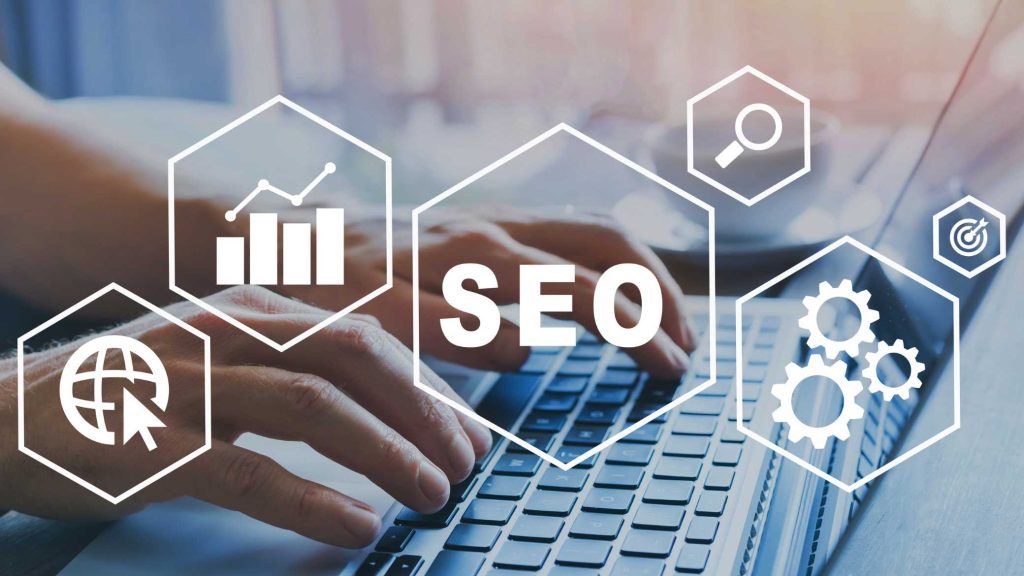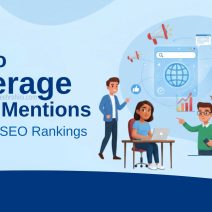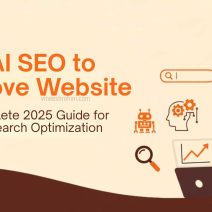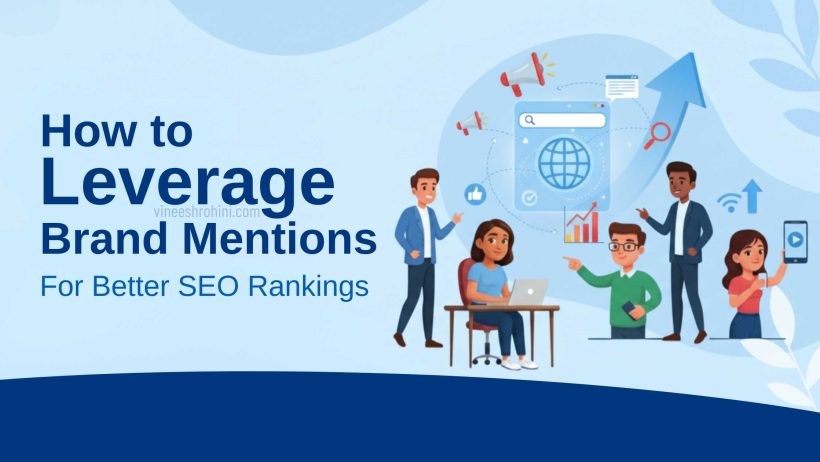Brand Mentions for Better SEO : In the modern landscape of digital marketing, search engine optimization (SEO) is no longer confined to backlinks and keywords alone. The algorithms have evolved, search engines have become smarter, and now brand mentions—a concept that was once seen as merely incidental—are emerging as one of the most significant contributors to search visibility and authority.
Table of Contents
Every time your brand name appears across the web—whether on social media, in blogs, news articles, forums, or review platforms—it leaves a digital footprint. These brand mentions shape how both users and search engines perceive your business. Even without a clickable link, they signal trust, reputation, and authenticity—elements that modern algorithms are designed to reward.
In this comprehensive guide, we’ll explore what brand mentions are, how they impact SEO, the difference between linked and unlinked mentions, how to build and track them strategically, and why they’re becoming one of the strongest ranking signals for 2025 and beyond.
Understanding the Concept of Brand Mentions

A brand mention occurs when your company’s name, product, or associated entities are referenced anywhere online. This could happen in a blog post, a social media update, a YT description, an online forum discussion, or a news article. These mentions can be linked (when the mention includes a hyperlink to your website) or unlinked (where your brand name is written in plain text without an actual link).
Traditionally, SEO professionals focused heavily on backlinks as the main signal of authority. However, with advancements in G’s algorithm—particularly the introduction of semantic search, E-E-A-T (Experience, Expertise, Authoritativeness, and Trustworthiness), and entity recognition—brand mentions have taken on a much deeper meaning.
Gnow recognizes that a brand being discussed across multiple reputable platforms is likely a trustworthy entity. The idea is simple: if people and authoritative sites are talking about your business, even without linking, you must have relevance and credibility in your industry.
Also Read : Use AI SEO to Improve Website – The Complete 2025 Guide for Smarter Search Optimization
This is where brand mentions become a trust signal—they show G that your brand exists within a network of meaningful conversations.
Why Brand Mentions Matter for SEO
Brand mentions strengthen several key areas of SEO simultaneously, making them a multifaceted ranking factor. Let’s break down the reasons why they matter:
a. Brand Mentions Build Authority and Trust
When other reputable websites mention your brand, G’s algorithm interprets this as validation of your authority. Repeated mentions across credible sources such as industry blogs, media publications, and social networks increase your perceived trustworthiness. Over time, this helps improve your domain authority and visibility in search results.
b. They Support Entity-Based SEO
Search engines are increasingly focusing on entities—distinct, identifiable subjects such as companies, products, or individuals. A brand that’s mentioned frequently within a specific niche helps G understand the entity better and connect it with relevant keywords and topics. This entity association can lead to higher rankings for related searches.
c. They Enhance Local SEO
For local businesses, brand mentions serve as a digital indicator of community presence. Being mentioned in local directories, community news websites, and local blogs tells G that your brand is active in a particular geographic region. This can significantly boost your visibility in G Maps and local pack search results.
d. They Strengthen Off-Page SEO Without Traditional Link Building
Not all mentions come with backlinks—and that’s perfectly fine. Even unlinked mentions play a role in improving your brand’s reputation and trust metrics. This makes brand mentions a more natural and sustainable alternative to traditional link-building strategies that can sometimes appear manipulative or spam-driven.
e. They Increase Branded Search Volume
Every mention creates curiosity. When users see your brand name frequently, they tend to search for it directly. This increase in branded search volume sends a positive signal to search engines that your business is being sought out intentionally—indicating popularity, authority, and consumer trust.
Linked vs. Unlinked Brand Mentions: What’s the Difference?

While both contribute to SEO, understanding their distinction helps you use them strategically.
Linked Mentions
A linked mention includes a direct hyperlink to your website or webpage. This traditional type of mention transfers link equity (commonly known as “link juice”) and directly impacts rankings by strengthening your backlink profile.
Unlinked Mentions
An unlinked mention simply includes your brand name in plain text without a hyperlink. While these do not pass link equity, they still help establish your brand as a recognized entity in G ’s semantic database.
With updates like G’s Panda, Hummingbird, and RankBrain, the search engine is now capable of understanding unlinked brand references. This means an article that praises your product without linking to your site still improves your brand recognition and visibility.
In essence, linked mentions boost authority, while unlinked mentions build trust and relevance—both essential ingredients for a powerful SEO strategy.
4. How G Interprets Brand Mentions
G doesn’t just count mentions—it understands them. Using machine learning and natural language processing, Gevaluates the context, sentiment, and relevance of every brand mention.
a. Co-Citation and Co-Occurrence
If your brand is mentioned alongside authoritative brands or key industry terms, it strengthens your relevance in that topic. This concept, called co-citation, tells G that your brand belongs in the same semantic field as other trusted names.
b. Sentiment Analysis
G analyzes whether the brand mentions are positive, neutral, or negative. A consistent trend of positive mentions helps increase trust signals, while negative press or reviews can have the opposite effect.
c. Entity Recognition and Knowledge Graph Inclusion
When your brand is mentioned across multiple verified and authoritative sources, G starts recognizing it as a distinct entity. This recognition helps your brand appear in Knowledge Panels, Featured Snippets, and even voice search results.
d. Correlation with Branded Searches
The more your brand is mentioned, the more likely people are to search for it directly. These branded searches act as a powerful ranking signal—showing oogle that your brand is gaining popularity organically.
Strategies to Build and Increase Brand Mentions

Building brand mentions is not about luck—it’s about proactive strategy. Here’s how you can do it effectively:
a. Create High-Quality, Shareable Content
Content remains the backbone of every SEO effort. When you create valuable, unique, and educational content, it naturally gets cited by other websites and blogs.
Examples include:
- In-depth guides and research articles
- Case studies
- Infographics
- Tutorials and explainer videos
The more your content solves real-world problems, the more likely others are to reference your brand.
b. Leverage Digital PR
Press releases, media outreach, and collaborations with journalists can generate high-authority brand mentions. Tools like HARO (Help a Reporter Out) and Muck Rack allow you to connect with media professionals who are looking for expert quotes or brand references.
c. Partner with Influencers and Thought Leaders
Influencers play a crucial role in driving online conversations. When they mention your brand in their videos, blogs, or social media posts, it creates visibility and credibility. Even without backlinks, these mentions help improve brand recognition.
d. Be Active on Social Media
Every time your brand engages with audiences on platforms like Twitter (X), LinkedIn, Insta , or YT, it generates micro-mentions. These conversations build a web of visibility that search engines interpret as brand activity and relevance.
e. Encourage Reviews and Testimonials
Customer feedback on platforms like G Reviews, Yelp, or Trustpilot often includes your brand name. These organic mentions, especially from verified customers, carry high credibility and contribute positively to local SEO.
f. Guest Blogging
Publishing guest articles on niche-relevant blogs allows you to naturally mention your brand and establish authority. Even if a publication doesn’t allow backlinks, a branded mention in your author bio still improves visibility.
g. Collaborate on Webinars, Podcasts, and Events
Participating in industry podcasts, webinars, and online summits exposes your brand to new audiences. Event listings, speaker bios, and recordings often include brand mentions that strengthen SEO.
h. Sponsor or Co-Host Industry Events
Event sponsorships create legitimate brand mentions across multiple press releases, websites, and media coverage channels—amplifying brand visibility and SEO authority.
Tracking and Measuring Brand Mentions
To optimize your strategy, you must track where and how your brand is being mentioned.
a. G Alerts
G Alerts is a free and simple tool that notifies you whenever your brand name appears on the internet. It helps you stay updated in real-time about new mentions.
b. Social Listening Tools
Use tools like Brand24, Mention, Awario, or Hootsuite to monitor conversations across social networks and websites. These tools analyze sentiment, frequency, and engagement levels.
c. SEO Analytics Tools
Platforms like Ahrefs, SEMrush, and Moz can detect unlinked mentions and show you potential opportunities to convert them into backlinks.
d. Manual Search and Outreach
Regularly perform branded searches on G to discover unlinked mentions. When you find one, reach out to the author or site owner politely and request them to link your brand name to your website. This method converts natural mentions into valuable backlinks.
Buy Now : AIOSEO – All in One SEO Plugin For WordPress
Common Mistakes to Avoid
While leveraging brand mentions for SEO is powerful, there are pitfalls to avoid:
- Ignoring Negative Mentions – Always monitor and respond professionally to negative discussions. Silence can harm reputation.
- Focusing Only on Backlinks – Don’t underestimate unlinked mentions. They play a major role in building trust.
- Using Manipulative PR Tactics – Over-optimized press releases or fake mentions can backfire.
- Not Tracking Mentions Properly – Without monitoring, you miss out on engagement and link-building opportunities.
- Neglecting Brand Consistency – Ensure your brand name, logo, and tone are consistent across all mentions.
Authenticity remains the foundation of brand mentions. Search engines reward organic visibility, not manufactured reputation.
The Future of Brand Mentions in SEO

As G continues to refine its algorithm to prioritize trust signals and contextual relevance, brand mentions are expected to play an even larger role in ranking factors.
We are moving toward a search environment dominated by entity-based SEO, where recognized brands with consistent visibility and authority dominate results. The rise of voice assistants, AI-powered search, and knowledge graphs means G increasingly relies on entity reputation rather than just backlinks.
Brands that focus on long-term reputation management, thought leadership, and consistent public visibility will naturally rise in rankings—without relying on aggressive backlink campaigns.
Simply put, the future of SEO belongs to brands that are talked about for the right reasons.
Best Practices for Maximizing SEO from Brand Mentions
To fully leverage brand mentions for better rankings:
- Ensure consistent brand name usage across all channels.
- Use schema markup to help G identify your brand as a verified entity.
- Engage with communities, forums, and publications relevant to your niche.
- Encourage your team, partners, and customers to share authentic experiences.
- Focus on long-term visibility rather than short-term link-building hacks.
When brand mentions are part of your integrated marketing ecosystem, they can dramatically amplify your digital presence and strengthen your SEO foundation.
Conclusion

Brand mentions have transformed from passive recognition into a core component of SEO strategy. In an age when authenticity and reputation drive visibility, being talked about across trusted platforms is as powerful as earning backlinks—sometimes even more.
By building consistent, positive, and authoritative mentions through high-quality content, influencer collaborations, PR efforts, and active engagement, your brand can earn the trust of both audiences and algorithms.
The result?
Improved visibility, stronger rankings, and a digital footprint that extends far beyond links—anchored instead in credibility and genuine recognition.
Remember: In 2025 and beyond, SEO success isn’t just about who links to you—it’s about who talks about you and how.
Disclaimer : This content is for educational purposes only and not professional SEO advice. Results may vary as search algorithms change.
Keywords : Brand Mentions for Better SEO – Brand Mentions for Better SEO!







